Recently, Nigeria’s Minister of Aviation, Festus Keyamo, criticised the Department of State Services (DSS) for their manual bag checks at airports, asserting that such practices cause unnecessary delays and inconvenience for travellers. He emphasised the need for reforms to streamline security processes and reduce harassment by multiple agencies at airports.
This incident reflects a widespread practice where agencies like the DSS and police conduct manual checks, often leading to frustration among passengers. While security is paramount in ensuring the safety of air travel, the methods employed must also prioritise efficiency.
Join our WhatsApp ChannelThe Role of Security Agencies at Airports
According to the Nigerian Civil Aviation Authority (NCAA) and the Federal Airports Authority of Nigeria (FAAN), security agencies at airports, such as the Department of State Services (DSS) and Aviation Security (AVSEC), play crucial roles in safeguarding civil aviation against threats. These agencies monitor baggage and cargo to prevent illegal items from entering or leaving the country, as well as conduct thorough screenings and intelligence assessments to thwart potential terrorist activities targeting aviation.
READ ALSO: Again, South-east Economy Grounded As IPOB Faction Imposes Sit-at-home
In doing this, they also enforce adherence to national and international aviation security regulations, including the oversight of security measures at airports. For instance, the Federal Airports Authority of Nigeria Act (Section 3) outlines the authority’s responsibility to provide effective security at airports, ensuring safe operations and compliance with aviation standards.
It is then worthy of noting that in the area of aviation standardisation, The International Civil Aviation Organisation (ICAO) acknowledges the need to balance security measures with the protection of individual privacy rights. This is outlined in Annex 17 of the Chicago Convention, which focuses on aviation security. It emphasises that security measures should be implemented in a manner that respects the dignity and privacy of individuals.
Concerns About Money Extortion Rather Than Security Searches
There have always been concerns that searches by Nigerian security agencies including airport searches are motivated by extortion rather than genuine security needs.
On 14 June 2024, Minister Keyamo also acknowledged numerous complaints from travellers regarding extortion at Nigerian airports “by a few unscrupulous persons who give all of us a bad image.” Meanwhile, he emphasised that the issue is partly beyond the aviation ministry’s control, as many involved agencies operate independently.
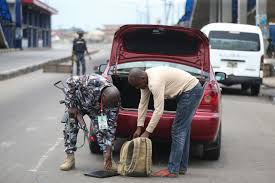
Wider Issues with Security Agencies in Nigeria
Criticism of security agencies, particularly the police, in public spaces has intensified due to widespread allegations of extortion and inefficiencies. Aside from reports, almost every individual in Nigeria including infants has witnessed and can attest that police officers frequently extort money from ordinary citizens at checkpoints, markets, and during routine patrols.
A report from HumAngle in 2023 detailed how security agents in Borno State routinely extort money from drivers at checkpoints. Drivers are often forced to pay bribes ranging from ₦50 to ₦100 to pass through these checkpoints, creating a culture of corruption where extortion is seen as a norm rather than an exception.
Accounts have also emerged criticising security Agencies’ failure to adequately pursue known criminals, such as kidnappers and thieves, while disproportionately targeting ordinary citizens. A report from the Nigeria Civil Society Situation Room, issued in November 2024, highlighted instances where police were aware of ongoing criminal activities but did not take action, instead focusing their efforts on vulnerable populations. The report noted that during the Ondo State Governorship election held on 16 November 2024, security agents were observed prioritising the harassment of innocent citizens over addressing significant security threats.
A Long-Standing Issue
Extortion by security agencies in Nigeria has been a long-standing issue, deeply rooted in systemic corruption and inefficiencies within the security sector. While specific early cases of extortion are difficult to pinpoint, reports suggest that the practice has existed since the establishment of the Nigeria Police Force in 1861.
Extortion practices by security personnel have been documented for years, particularly on highways and at checkpoints. Reports indicate that this behaviour intensified during periods of heightened insecurity, such as the Boko Haram insurgency, which began in 2009. A 2010 Human Rights Watch report detailed how armed police officers demand bribes from taxi drivers and market traders, threatening arrest or physical harm for non-compliance.
The #EndSARS protests that erupted in October 2020 were fuelled by widespread anger over police brutality and extortion. The protests specifically targeted the Special Anti-Robbery Squad (SARS), a unit notorious for its abusive tactics. Before and even after the protests, many citizens reported being extorted, unlawfully detained, and subjected to violence by SARS officers. The hashtag #EndSARS became a rallying cry against these abuses. Although protesters called for reforms within the police force, including better training and oversight to prevent further abuses of power, police extortion has continued.
In November 2024, four police officers from the Zone 16 Zonal Headquarters in Yenagoa were detained for allegedly extorting ₦10 million from youths. The Inspector General of Police (IGP), Kayode Egbetokun, condemned these actions and emphasised a zero-tolerance policy towards corruption within the force, yet the issue continues to arise.
Public Stop-and-Search: An Invasion of Privacy
Public searches by airport security and law enforcement often invade privacy and breach passengers’ dignity. These intrusive practices foster mistrust, disproportionately target certain demographics and can deter individuals from travelling. Under the Human Rights Act 1998, stop-and-search powers must respect individuals’ rights to privacy (Article 8) and be conducted legally and proportionately. However, many public searches fail to meet these standards, resulting in violations of personal rights.
Global Standards: Nigeria’s Approach Compared to Other Countries
In Nigeria, security agencies often resort to invasive methods such as scattering personal belongings at checkpoints in the name of searches while criminals already have many strategies for escaping capture.
In contrast, countries like Canada and Germany employ more discreet, technology-driven approaches. These nations utilise advanced screening technologies such as biometric scanners and automated systems to enhance security without compromising individual dignity.
Minister Festus Keyamo’s argument for adopting modernised security practices aligns with these global standards, advocating for the integration of technology that respects privacy while effectively identifying threats; hence the need for Nigerian security agencies to employ modern means.
What Must Be Done
To address the challenges of security searches while respecting passenger dignity, several key measures must be implemented: First, security personnel should receive comprehensive training focused on individual rights, cultural sensitivity, and effective communication to ensure searches uphold dignity. The integration of modern technologies such as body scanners and automated screening systems can enhance security without invasive physical searches.
Additionally, establishing private profiling rooms for sensitive checks will help maintain passenger privacy. Inter-agency collaboration is essential to streamline processes and reduce overlaps in responsibilities leading to more efficient security measures. As suggested by Keyamo, collaboration with other government ministries to address this problem is crucial; he announced measures to combat touting and extortion including severe penalties for offenders.
Passengers should feel empowered to report any issues of extortion or harassment by security personnel without fear of retaliation; clear reporting mechanisms will encourage accountability. It is crucial to reiterate that ensuring security should not compromise passenger experience or human dignity. By adopting these strategies, we can create a respectful and effective security environment that aligns with global best practices while safeguarding the rights of all passengers.
Dr Mbamalu is a Jefferson Fellow, member of the Nigerian Guild of Editors (NGE), communications/Media Consultant and Publisher, Prime Business Africa
Email: marcelmbamalu2@gmail.com
+2348094000017
Dr. Marcel Mbamalu is a communication scholar, journalist and entrepreneur. He holds a Ph.D in Mass Communication from the University of Nigeria, Nsukka and is the Chief Executive Officer Newstide Publications, the publishers of Prime Business Africa.
A seasoned journalist, he horned his journalism skills at The Guardian Newspaper, rising to the position of News Editor at the flagship of the Nigerian press. He has garnered multidisciplinary experience in marketing communication, public relations and media research, helping clients to deliver bespoke campaigns within Nigeria and across Africa.
He has built an expansive network in the media and has served as a media trainer for World Health Organisation (WHO) at various times in Northeast Nigeria. He has attended numerous media trainings, including the Bloomberg Financial Journalism Training and Reuters/AfDB training on Effective Coverage of Infrastructural Development of Africa.
A versatile media expert, he won the Jefferson Fellowship in 2023 as the sole Africa representative on the program. Dr Mbamalu was part of a global media team that covered the 2020 United State’s Presidential election. As Africa's sole representative in the 2023 Jefferson Fellowships, Dr Mbamalu was selected to tour the United States and Asia (Japan and Hong Kong) as part of a 12-man global team of journalists on a travel grant to report on inclusion, income gaps and migration issues between the US and Asia.

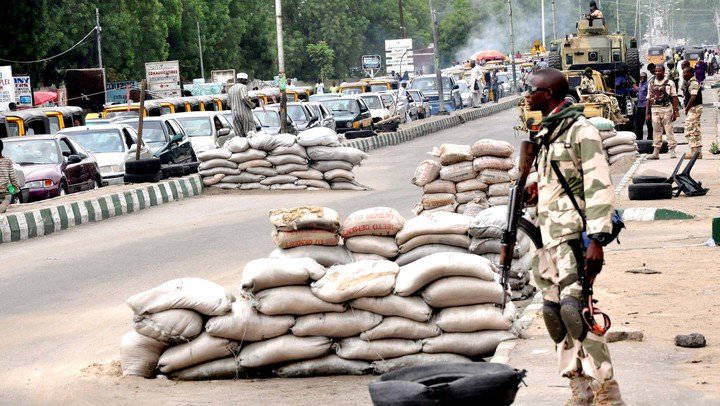




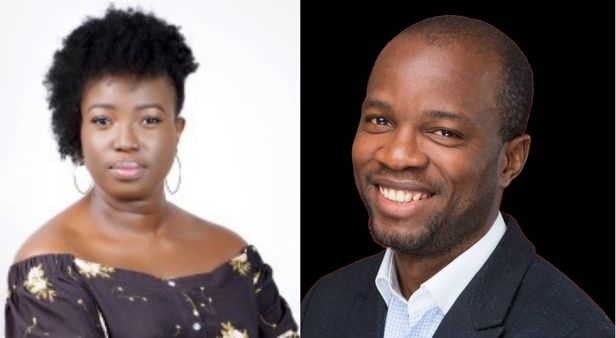
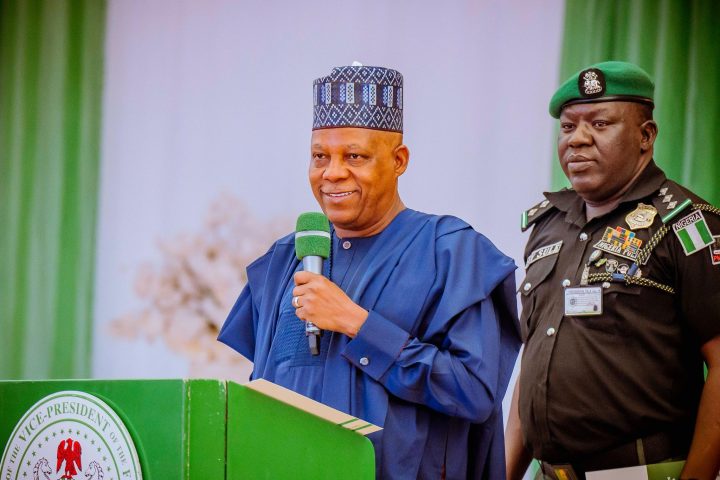









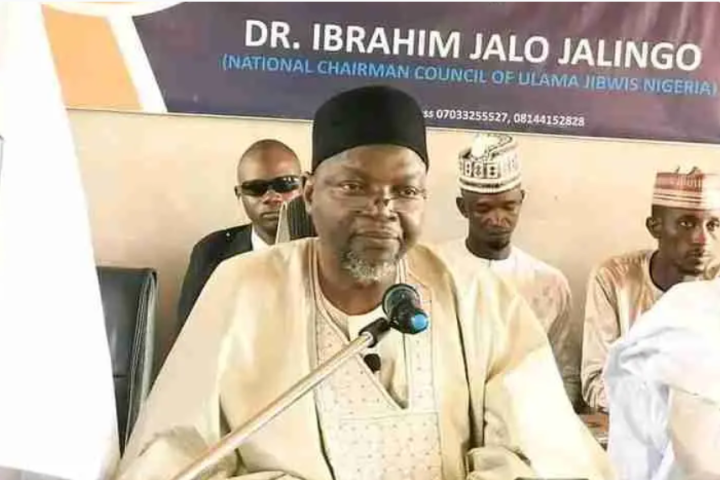

Follow Us